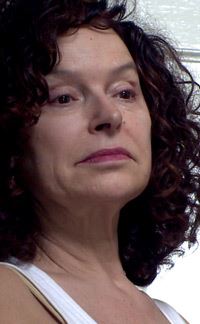by Julia Pascal 
Notes from the 1984 Conference of Women Theatre Directors and Administrators reveal that little has changed for women in British state theatre seeking equality of opportunity.
Questions asked then were:
Why is there no parity for women on the English subsidized stage? Why is the male-only narrative considered the human one? Why are women shoehorned into a category called ‘diversity’? Why are women forced to compete for subsidy with other groups and therefore perceived as a minority? Why are women the majority on the fringe where their work is unsupported by any infrastructure. Why is women’s work unfunded or underfunded compared to men who run national theatres? Why are women under-represented in the English theatre canon? Why are women ghettoized because they have a vagina and not a penis?
In 2019, I invited Chris Campbell, former Literary Manager of the National Theatre, to talk to my Theatre MA students at City University. How did you get the job? I enquired. He told the group of students and me I was an actor at the NT and keen to play all the roles that Simon Russell Beale was given. I was not a very good actor and I was not given these parts. One day the Artistic Director, Nicholas Hytner, invited me in to his office and asked me if I wanted to join the Literary Department. That’s how I became Literary Manager. The job was not advertised which goes against the spirit of the law. Jobs for the boys is not supposed to happen in the state theatre. But the funding body, the Arts Council, does not check this and so it happens and nothing is said. The role of the Literary Manager is crucial. He, and it is always he at the National Theatre, is the gatekeeper. A writer must be approved by him to get her work read. When Hytner was National Theatre Artistic Director, and rewarded for it with a knighthood, he never directed a play by a woman. Therefore, the Literary Manager knew in advance that he must favour male writers. When Hytner was asked why so few women were produced under his watch, his response was in twenty years women will have equality.
https://www.thestage.co.uk/news/2012/nicholas-hytner-predicts-gender-equality-among-theatre-makers
Had he said this about a black person he would have been sacked. Hytner has now left the National Theatre but is still considered one of the ‘great and the good’.
In 2014, Sam Potter asked if the National Theatre had a problem with women when blogging in The Stage. Of 206 productions in the 12 years of Hytner’s directorship only 15% were written by women. Peter Hall, another knight of the British establishment, programmed four women playwrights in 15 years.
https://www.theguardian.com/stage/theatreblog/2013/nov/07/national-theatre-problem-with-women
This is how it is run in Britain.
In 2018, I wrote in The Guardian about this human rights injustice.
https://www.theguardian.com/commentisfree/2018/apr/24/women-theatre-quotas-stage-gender
After pulling together a petition of a hundred women protesting about lack of parity, I went to see the Director of the Arts Council with a core group of professional theatre practitioners, among us was Equity’s President Maureen Beattie. We discussed this with Sir Nicholas Serota, Chair of the unelected quango, the Arts Council. The Arts Council is the distributor of state money. Its funds come from the taxpayer, over half of which are women. Those women rarely see the complexity of their lives onstage. At the Arts Council meeting my colleagues and I revealed that this lack of parity was a human rights issue and one which we have been exposing as a problem in theatre for over thirty years. Sir Nicholas declared that he was shocked by our revelations. I asked about the monitoring of jobs for the boys in the Literary Departments. Arts Council officers said that there was none.
The patriarchal order is the default position. Questioning it has resulted in intimidation. When I wrote in 1984 in the London magazine City Limits, that the national theatres were marginalizing women’s work, I received a personal letter from the Director of the Royal Shakespeare Company. Sir Trevor Nunn was so outraged at being held responsible for lack of parity that he wrote this ‘somehow I doubt that you will be experiencing much of what we do at first hand.’
What is the answer? Perhaps The Guerrilla Girls have got it right with their demonstrations outside which shame art galleries that show male-only work.
https://www.tate.org.uk/art/artists/guerrilla-girls-6858/who-are-guerrilla-girls
If the majority of theatre audiences - women - went on strike, this would provoke panic among the ruling self-proclaimed elite. I suggest that we should refuse to visit theatres that do not practise parity. If the Arts Council is afraid to take on the clients it funds and refuses to withdraw funding from theatres that refuse our equal right to work as playwrights, performers, directors and practitioners, we must take action ourselves. A theatrical demonstration outside theatres would provoke unwelcome publicity and highlight this sexual apartheid to a wider audience.
Julia Pascal’s new play Blueprint Medea opens at the Finborough Theatre 22 May 2019.

https://www.finboroughtheatre.co.uk/productions/2019/blueprint-medea.php?spektrix_bounce=true
Julia Pascal is a playwright and scholar in the UK focusing on politics and war. Plays explore multi-ethnicity, the transmission of trauma, mothers and daughters/fathers and sons. Family conflict through a political prism.
You can check out her member profile in the member directory as well as:
www.juliapascal.org
www.pascal-theatre.com
![]() at the top of the post
at the top of the post![]() at the top of the post
at the top of the post